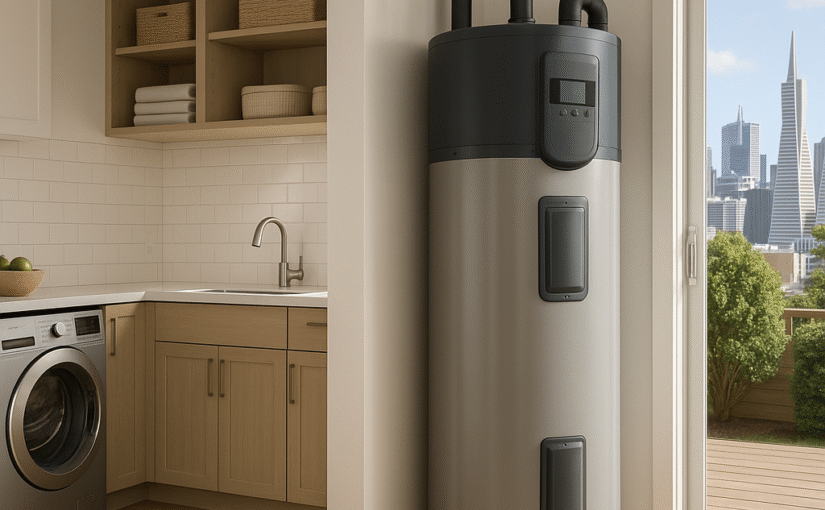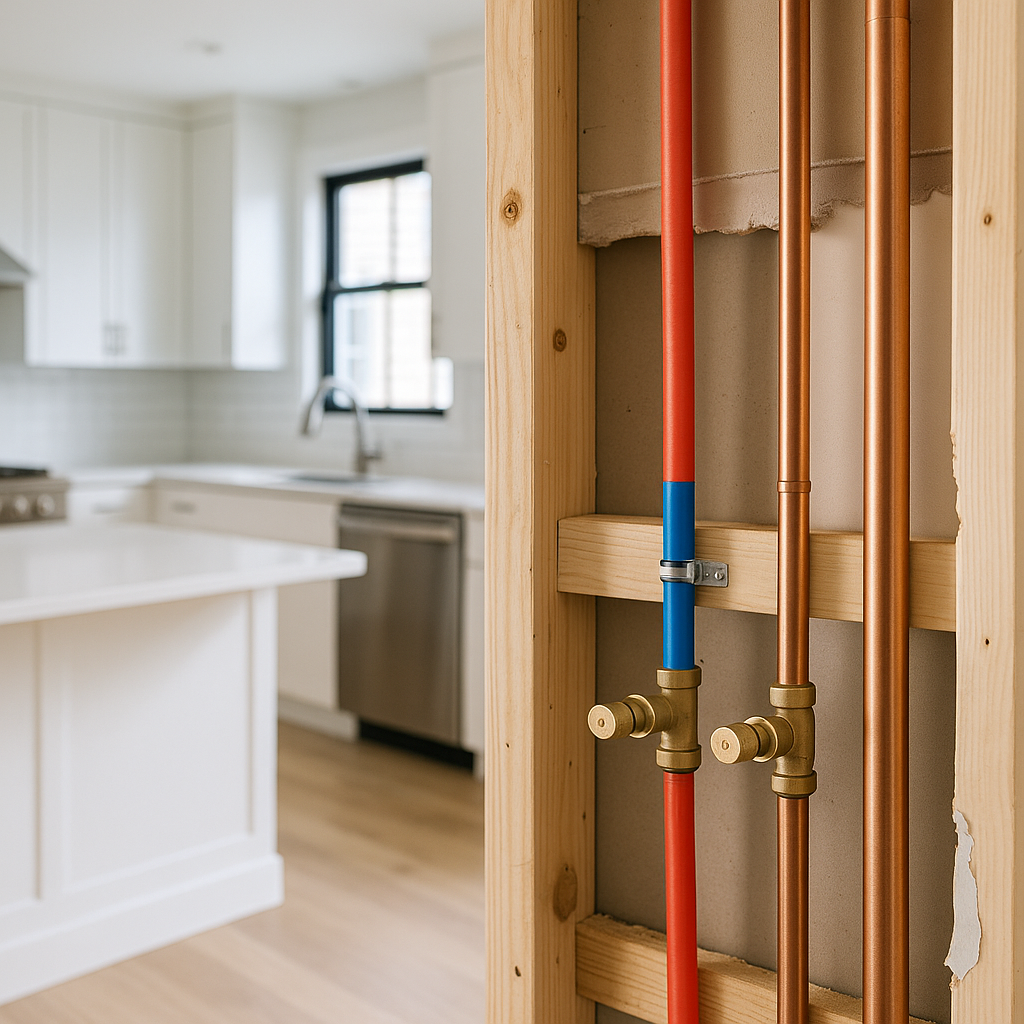Understanding Plumbing & Repiping in San Francisco: What Homeowners Need to Know
20 January, 2026
Maximize Energy Efficiency with Heat Pump Water Heaters in San Francisco
As homeowners in San Francisco seek sustainable solutions to reduce energy consumption and costs, heat pump water heaters have emerged as an attractive option. These innovative systems not only provide hot water but also significantly improve energy efficiency compared to traditional water heating methods.
What Is a Heat Pump Water Heater and How Does It Work?
A heat pump water heater (HPWH) is a device that uses electricity to move heat from one place to another rather than generating heat directly. This system extracts heat from the air or ground and transfers it to the water in the tank, making it a highly efficient alternative to conventional electric or gas water heaters.
The main components of a heat pump water heater include:
- Evaporator Coil: Absorbs heat from the surrounding air.
- Compressor: Increases the temperature of the absorbed heat.
- Condenser: Transfers heat to the water in the tank.
- Expansion Valve: Regulates the flow of refrigerant.
By using electricity to move heat instead of creating it, HPWHs can be two to three times more energy-efficient than traditional water heaters.
Sizing a Heat Pump Water Heater for Your Home
Choosing the right size for your heat pump water heater is crucial for maximizing efficiency and ensuring adequate hot water supply. Here are some tips for sizing:
- Estimate Hot Water Usage: Calculate the total gallons of hot water your household uses daily.
- Consider Peak Demand: Identify the highest demand times to ensure sufficient capacity during those periods.
- Consult Sizing Guidelines: Refer to manufacturer specifications for the right size based on your household's needs.
Investing in a properly sized unit can prevent energy waste and increase the lifespan of your system.
T&P Relief Valve and Condensate Drainage Options
Heat pump water heaters require a Temperature and Pressure (T&P) relief valve to prevent excessive pressure buildup. It’s essential to:
- Install the T&P valve according to local codes.
- Ensure the discharge line directs water to a safe location.
Additionally, HPWHs produce condensate as a byproduct, which needs to be drained properly. Options include:
- Drain pan with a condensate pump.
- Gravity drain to a suitable location.
Proper drainage helps maintain system efficiency and prolongs its life.
Heat Pump Water Heaters and San Francisco’s Energy Codes
San Francisco has specific energy codes that govern the installation of heat pump water heaters. These codes aim to promote energy conservation and reduce environmental impact. Homeowners should:
- Review local regulations regarding HPWH installations.
- Ensure compliance with energy efficiency standards set by the California Energy Commission.
Working with a licensed plumber who understands these codes can help you avoid potential pitfalls during installation.
Rebates and Incentives for Heat Pump Installations
To encourage the adoption of energy-efficient technologies, various rebates and incentives are available for San Francisco homeowners. These include:
- Local utility rebates for installing eligible heat pump water heaters.
- Federal tax credits for energy-efficient home improvements.
- State-sponsored programs aimed at reducing the upfront costs of HPWH installations.
Consult with your utility provider or check the California Energy Commission’s website for updated information on available incentives.
Noise and Space Considerations for Heat Pump Systems
While heat pump water heaters operate quietly, some units may produce noise similar to a refrigerator. Homeowners should consider:
- Location of installation: Ensure the unit is placed in a well-ventilated area away from living spaces.
- Space requirements: HPWHs typically require more space than traditional tanks, so assess your available area before purchasing.
Choosing a unit with a low noise rating can further enhance comfort in your home.
Eco-Friendly Plumbing: Heat Pump Water Heaters vs. Traditional Tanks
When evaluating eco-friendly plumbing options, heat pump water heaters stand out against traditional tank systems. Key advantages include:
- Energy Efficiency: HPWHs use less energy, leading to lower utility bills and reduced carbon footprint.
- Longer Lifespan: With fewer mechanical components, HPWHs typically last longer than traditional tanks.
- Reduced Heat Loss: HPWHs maintain hot water temperature more effectively, minimizing heat loss due to insulation.
Ultimately, switching to a heat pump water heater can contribute significantly to your home’s sustainability efforts while providing reliable hot water.

Location
The Richmond District, San Francisco, CA







